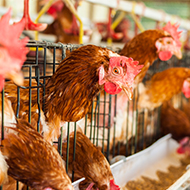MPs urged to recognise human-animal bond
APDAWG says that the government needs to recognise pets as key contributors to wellbeing.
A group of human and canine welfare organisations have collaborated to campaign for more policies that acknowledge the human-companion animal bond.
On Tuesday, 21 January, 39 MPs met with key figures from the animal welfare sector during a parliamentary drop-in session at Westminster.
The event was hosted by veterinary surgeon Marc Abraham OBE, founder of Our Special Friends (OSF) Belinda Johnston, and chair of the Society for Companion Animal Studies (SCAS) Elizabeth Ormerod. The group sought to highlight the importance of animal companionship support services in improving the lives of those experience vulnerability.
It was attended by MPs from many political parties, including Labour MP Becky Gittens, Plaid Cymru MP Anne Davies and independent MP Rosie Duffield.
The drop-in was followed by a meeting of the All-Party Parliamentary Dog Advisory Welfare Group (APDAWG). Hosted by Dr Abraham and organised by OSF and SCAS, the session included presentations from a number of organisations which promote the human-animal bond.
Among the speakers were Canine Partners, which trains assistance dogs, and Paws for Progress, which leads dog-assisted learning programmes in prisons, schools and the local community.
The speakers discussed a focus on ethical practices which promote mutually beneficial interactions between people and dogs. They explained the need for collaboration between canine and human welfare organisations, as well as the need for the development of best-practice guidelines across sectors.
Following their meeting, APDAWG agreed that the government needed to recognise pets as key contributors to wellbeing and support its collaborative efforts.
APDAWG calls for more policies that promote pet-inclusive housing, including in temporary and emergency accommodation. It also highlights the necessity of humane education on animal welfare and pet ownership, which it says will create safe, compassionate communities for people and animals.
Dr Abraham said: “It was an honour for APDAWG to host the parliamentary drop-in and meeting in Westminster, in partnership with OSF and SCAS.
“Together, with some truly incredibly inspiring speakers, we demonstrated the unquestionable benefits of animal-assisted services, including offering emotional support, improved mental health, and physical benefits, while addressing the importance of undertaking these interactions safely for both people and dogs."
Image © APDAWG



 An Avian Influenza Prevention Zone (AIPZ) has been introduced across Wales.
An Avian Influenza Prevention Zone (AIPZ) has been introduced across Wales.